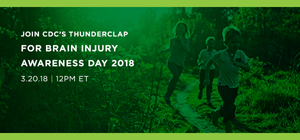| MMWR Early Release Vol. 64, Early Release January 13, 2015 |
| In this report |
| Improving Burial Practices and Cemetery Management During an Ebola Virus Disease Epidemic — Sierra Leone, 2014 Carrie F. Nielsen, PhD, Sarah Kidd, MD, Ansumana R.M. Sillah, PhD, MD, et al. MMWR Morb Mortal Wkly Rep 2015;64(Early Release):1-8 Contact with the bodies and fluids of persons who have died of Ebola virus disease (Ebola) is especially common in West Africa, where family and community members often touch and wash the body of the deceased in preparation for funerals. These cultural practices have been a route of Ebola transmission. In September 2014, CDC, in collaboration with the Sierra Leone Ministry of Health and Sanitation, assessed burial practices, cemetery management, and adherence to recommended practices to reduce the risk for Ebola virus transmission. |
| Use of a Nationwide Call Center for Ebola Response and Monitoring During a 3-Day House-to-House Campaign —Sierra Leone, September 2014 Leigh Ann Miller, PhD, Thomas Sukalac, Emily Stanger, et al. MMWR Morb Mortal Wkly Rep 2015;64(Early Release):1-2 During May 23, 2014-January 10, 2015, Sierra Leone reported 7,777 confirmed cases of Ebola. On August 5, Sierra Leone's Emergency Operations Center established a toll-free, nationwide Ebola call center. This report describes calls received during a 3-day national campaign and reports the results of an assessment of the call center operation during the campaign |
Environmental Health (New ) November - December 2016
The following new articles have just been published in Environmental Health: Source: https://www.biomedcentral.com/ Research (1) Long-term outdoor air pollution and DNA methylation in circulating monocytes: results from the Multi-Ethnic Study of Atherosclerosis (MESA) Chi G, Liu Y, MacDonald J, Barr R, Donohue K, Hensley M, Hou L, McCall C, Reynolds L, Siscovick D, Kaufman J Environmental Health 2016, 15:119 (1 December 2016) Abstract http://ehjournal. biomedcentral.com/articles/10. 1186/s12940-016-0202-4#Abs1 Full text http://ehjournal. biomedcentral.com/articles/10. 1186/s12940-016-0202-4 PDF http://ehjournal. biomedcentral.com/track/pdf/ 10.1186/s12940-01...

تعليقات
إرسال تعليق